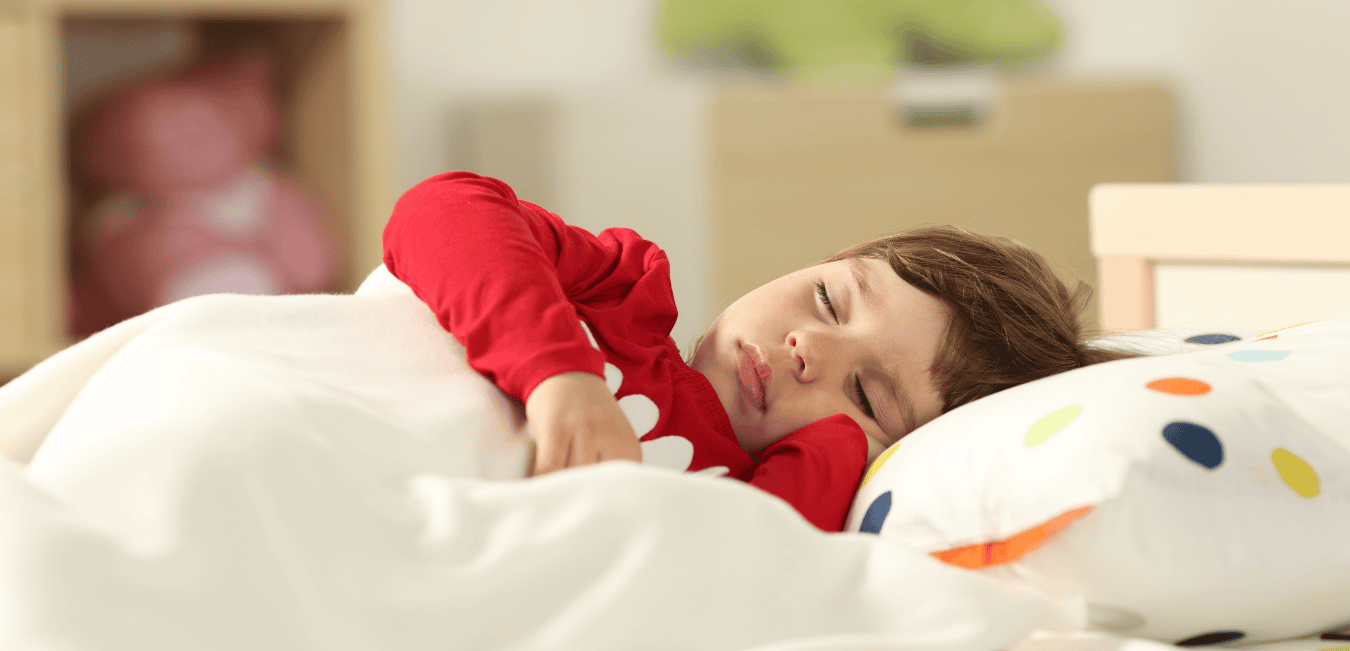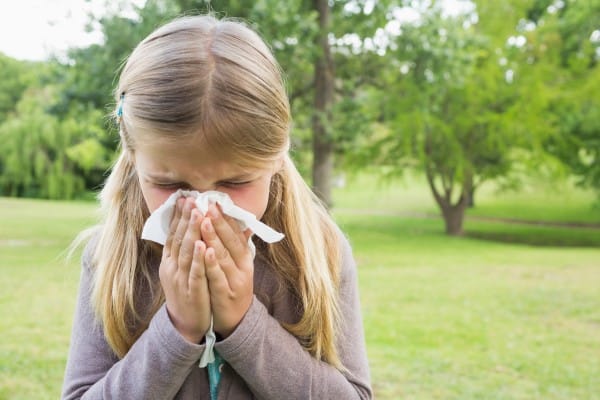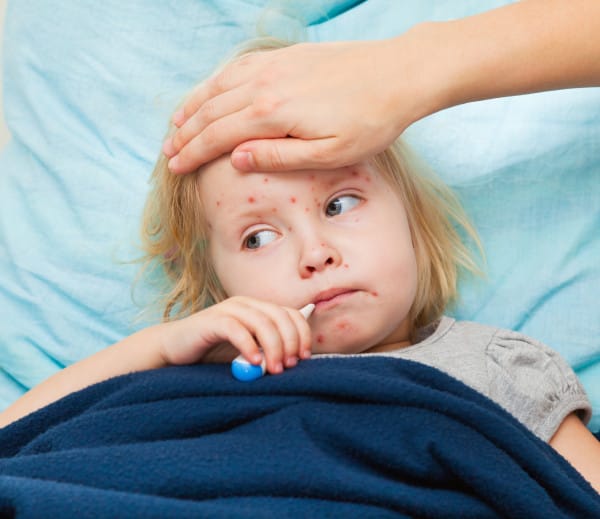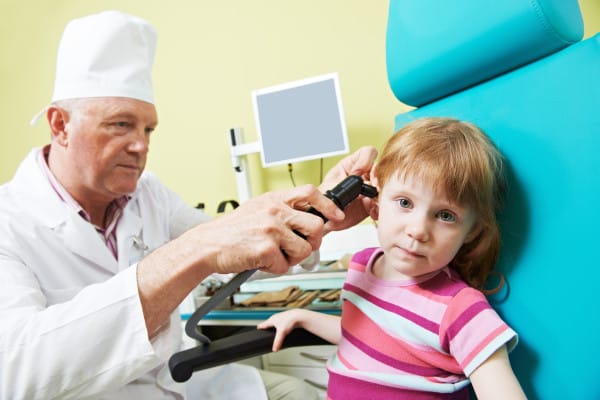A good night’s sleep is important at all stages of life. Sleep deprivation negatively affects mood, energy, immune system, inflammation, weight, cognition, and more. There may be many reasons your kids aren’t sleeping well. If you have a child experiencing sleep difficulties, then this article is for you.
Below is a troubleshooting guide that contains my top lifestyle strategies and supplement ideas to support a good night’s sleep for children.
Common Reasons Kids Aren’t Sleeping & Ideas to Help Them Get a Good Night’s Sleep
1. Difficulty Calming Down
Sometimes life is just too fun to sleep! Help solve this problem by having a quiet, predictable bedtime routine, stopping screens at least 2 hours before bed, using the bed just for sleep (not play or work).
2. Too Restless To Be Still
The classic ants-in-pants syndrome keeps many kids (and their parents) awake at night. Help solve this problem by avoiding exciting physical activity for two hours before bed. A walk around the neighborhood or some stretching after dinner are good physical ways to wind down. Some kids find that adding a hot bath or shower to their bedtime routine helps with calming, but other kids find it stimulating. Progressive muscle relaxation is especially effective at resolving restlessness, especially if you use a technique that requires tensing each muscle group and then releasing it.
Supplemental support: Magnesium helps relax the body and prepare for sleep.
3. Growing Pains
Growing up can sometimes be painful! If your child is having trouble sleeping through a growth spurt, growing pains could be to blame. Older kids can tell you, but younger children might just be irritable and restless. A before bed massage with coconut oil and lavender can help relax and relieve pain, as can an epsom salt bath or warm compress. Staying hydrated throughout the day, but not right before bed, is also important.
Supplemental support: Magnesium helps with pain and my homemade electrolyte drink supports hydration.
Homeopathic support: Arnica is a classic pain reliever. Ledum is specific for growing pains. To learn more about how to dose homeopathic medicine, see this article: How To Use Homeopathic Medicine – A Quick Start Guide For Families
4. Disruption To Sleep Schedule
We know that having a regular sleep schedule is important for both kids and adults. When the sleep schedule gets thrown off, it can make getting to sleep on time really difficult. To help kids re-regulate their circadian rhythm, time outside in the morning helps, as does reducing screen time at night, and getting back into a regular sleep routine.
Supplemental support: Melatonin is well known for being able to restore sleep-wake cycles. It should be taken approximately 90 minutes before bed. It’s safe for all ages (once a regular sleep wake cycle is established), but does interact with some medications. It is usually only necessary to use melatonin for 1-5 days to reset the sleep cycle. Using too much melatonin for too long can result in a child waking up around 2am, having vivid dreams or nightmares, having a paradoxical reaction (melatonin is energizing rather than sedating). There’s no need to worry if one of these reactions occurs, it is simply time to stop melatonin.
5. Nightmares
Nightmares are often a child’s way of processing something upsetting that is happening in their life or has happened. This could be an event that occurred, something that happened in a show or book, an anxiety, or something else. These kids need comfort and listening more than anything else. If they continue on for more than a week or two, it can be helpful to speak to a professional to help your child untangle their worries and fears.
Remove contributing factors: Avoid scary media, avoid things that can promote vivid dreams (dairy before bed, melatonin, lavender essential oil).
Essential oil support: Lavender can promote vivid dreams, but it can also be soothing and helpful for sleep. Experiment to find out if it is making things better or worse. Vetiver and chamomile essential oils are good alternatives to support sleep.
6. Night Terrors
Unlike nightmares, night terrors aren’t usually associated with frightening experiences or trauma. Instead they are more often associated with being overtired, stressed, or overwhelmed. They are thought to be the result of a partial arousal from non-REM sleep. To help resolve night terrors, a regular sleep routine coupled with plenty of physical exercise during the day is ideal. Check your child’s diet for any hidden stimulants like caffeine, MSG, and certain food additives. Rarely, even vitamins can be stimulating, so experimenting with taking them earlier in the day could help. Usually night terrors don’t require treatment, but they should be mentioned to your doctor during routine child visits.
7. Waking To Comfort-Nurse Or Because Of Low Blood Sugar
Waking in the night to comfort-nurse is very common and is actually a variation of a normal sleep cycle. We all wake 10+ times every night, however the wakings are usually brief and we fall back to sleep without ever remembering our brief moments awake. If a child’s preferred way to fall back to sleep is to nurse, then they will wake up their mom for help! The best way to resolve this is to help support your child in falling asleep on their own at nap times and at bedtime.
Sometimes it seems as though little ones are waking to comfort nurse, but they are actually waking up because their blood sugar has dipped. To solve this, make sure that kiddos have a bedtime snack with blood-sugar stabilizing fat, protein, and/or fiber. My favorite option is chia pudding.
Supplemental support: Magnesium can help parents who have difficulty falling back to sleep.
8. Bladder Irritation & Bed Wetting
Bladder irritation and bed wetting is normal. Only 85% of 5 year olds can stay dry consistently through the night. It is normal for kids to occasionally wet the bed until they are 10 or 12. Being prepared with a mattress protector, diapers if needed, and clean sheets is the best strategy. Toileting before bed and avoiding excess fluid intake after dinner are also practical solutions which may reduce, but won’t completely eliminate the possibility of bed wetting. Speaking to your doctor about working with a bedwetting alarm is another option.
Supplemental support: St. John’s Wort tea or flower essence is a possible treatment for bed wetting. However, remember to avoid teas within 2 hours of bedtime. St. John’s Wort interferes with many medications, so it isn’t a good option for children taking pharmaceutical drugs.
Avoid bladder irritants: Avoiding bladder irritants has helped many of my patients resolve bed wetting. The most common bladder irritant in children is apples and apple juice. Other fruit juices, tea, and vitamin C are also common irritants.
Treat constipation: Bedwetting is sometimes a result of constipation. Staying hydrated, a fiber-rich diet, and a probiotic can be helpful.
New onset bedwetting can be a red flag: New onset bedwetting or inappropriate toilet behavior can be a red flag in children. It can be a sign of a bladder infection, which requires medical attention. It can also be a sign that sexual abuse has occurred or is occurring.
Read more about bedwetting here: Natural Solutions For Bedwetting In Older Children & Teens – Dr. Green Mom
9. Desiring Connection
Sometimes our lives are busy, full, and fun, but we don’t always take the time to fully connect with our loved ones. Occasionally, kids will stay up asking questions once they’re snuggled up in bed. If you have a tiny philosopher on your hands, try shifting bedtime a little earlier so that you can spend some time talking about the big questions, hearing about the schoolyard drama, or sharing stories of your own childhood.
Supplemental support: A kava supplement taken daily can be a helpful supplement for parents who have trouble relaxing and enjoying these small moments.
Summary
Getting a good night’s sleep is important for the whole family. There are many reasons kids aren’t sleeping well and each cause requires a different strategy to treat. Having a regular sleep routine and getting plenty of exercise (ideally outdoor) during the day are simple and effective steps to achieve better sleep. Once these steps are in place, it’s often just a case of removing things that are causing sleep difficulties and encouraging relaxation.
References:
Leung, A., Leung, A., Wong, A., & Hon, K. L. (2020). Sleep Terrors: An Updated Review. Current pediatric reviews, 16(3), 176–182.
Salter, S., & Brownie, S. (2010). Treating primary insomnia – the efficacy of valerian and hops. Australian family physician, 39(6), 433–437.
Vanek, J., Prasko, J., Ociskova, M., Holubova, M., Minarikova, K., Kamaradova-Koncelikova, D., Kantor, K., & Nesnidal, V. (2020). Nightmares and their treatment. Neuro endocrinology letters, 41(2), 86–101.
Pin Arboledas, G., Soto Insuga, V., Jurado Luque, M. J., Fernandez Gomariz, C., Hidalgo Vicario, I., Lluch Rosello, A., Rodríguez Hernández, P. J., & Madrid, J. A. (2017). Insomnio en niños y adolescentes. Documento de consenso [Insomnia in children and adolescents. A consensus document]. Anales de pediatria (Barcelona, Spain : 2003), 86(3), 165.e1–165.e11.
Radhakrishnan Pillai, R., & Sara, B. (2020). Conquering Bedwetting: Non-Pharmacologic Methods for Managing Nocturnal Enuresis. Creative nursing, 26(1), 23–27.







